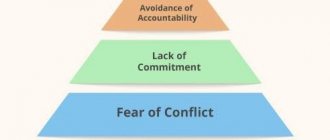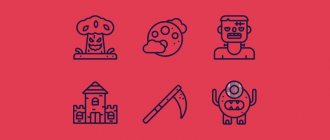Social relations are impossible without individuals who have a certain set of character traits, self-awareness, intelligence and mental characteristics. Any traits inherent in a person make him unique and inimitable. A personality becomes complete and self-determined according to its chosen and occupied place in society, precisely because of the presence of various traits. Varieties of personalities form social types. Numerous studies by modern scientists have identified different opinions, approaches and theories in defining social types. Based on the work carried out, the main personality types were scientifically identified, each of which is exceptional.
Description of the concept
Social type is the totality of personal qualities of an individual who is part of a social group. The concept arose as a result of historical transformations, political, economic, legal and cultural events occurring in the lives of people over many generations.
There are several specific personality groups, each of which plays its own role in society:
- modal – the most common, frequently occurring, characterizes individuals who constantly change their behavior pattern (adapt) throughout life, depends on age;
- ideal - considered the standard of human behavior in the future, based on rationality, balance, intelligence, the predominance of only positive character traits, observance of moral and moral qualities;
- basic - is the basis where any life events take place, meets the needs of society and the state, has a model of behavior that suits absolutely all people.
Any personality is formed on the basis of real events, environment, surroundings, time, as it is included in the social system, mastering material and spiritual areas. Family plays a great role in the formation of concepts in the early stages of growing up. It is the experience, skills, upbringing, education, ability to self-awareness and setting life goals obtained in the family that form the psychotype, a set of characteristic traits, behavior and rules of interaction with other individuals.
What is "social philosophy"?
Social philosophy is a branch of science that answers the question of what society is, and what place is assigned to a person in it, what patterns can be traced, and how society develops from the position of the system. This science took shape in the Ancient world, but in different eras it received several names:
- ethics;
- political philosophy;
- philosophy of history.
Therefore, it finally crystallized as an independent science only in the 19th century; the term “social philosophy” was first introduced by the Frenchman Auguste Cohn. If society is represented as a connection between people in such manifestations as money, language, state and family, then the main questions that this science solves are formulated as:
- Interaction between society and people.
- The influence of the individual on society.
Characteristics of the concept
The basis of the social existence of the social type is the setting by the individual of certain goals and objectives that help him establish contact with the surrounding society.
The characteristics of social type as a concept are as follows:
- Has knowledge, skills, needs connections and communications with other individuals.
- Strives to educate, teach, obey and share smart thoughts.
- Is humane, responsible and fair.
- Able to get used to and learn to live in any conditions.
- He considers activity and verbal abilities to be an important quality of life.
- When making decisions quickly, it is based on feelings, emotions and communication experience.
- Trying to develop professionally.
- Willingly participates in public events and events, and is not afraid to express personal opinions on processes affecting society and the state.
- Uses mutual assistance, understands the needs and moods of other people.
Any social type is always surrounded by family, groups, organizations, institutions, institutions, services. Types strive to build their lives correctly, in which there is a place for activities, a daily routine and well-organized leisure time.
Social types are active and passive. The former organize activities and events, and the latter participate, perform and accept them. Types perform social work, voluntarily participate in charity, attend meetings, and come up with various intellectual and competitive groups that functionally influence the life of the environment.
An individual combines various personality traits, combining several social types at once. For example, a tough, demanding, disciplined leader in his family is a loving father, an attentive husband, with a soft, responsive character. Or another example - a collected, responsible, competent worker in a home environment turns into a sloppy, sloppy and indifferent person.
Methods of social philosophy
Modern approaches in social philosophy have helped researchers determine not only the patterns of possible development of complex political situations, but also crystallize personality types. This approach greatly helps psychologists and analysts in individual and collective work with people. Today the following basic methods have been formulated:
- Participant observation
. The researcher infiltrates the team, as one of the employees or activists of the movement, in order to create an internal picture. Disadvantage: it is impossible to influence the course of the process. - Social experiment
. Studying an object in specially created conditions. Plus: you can repeat the situation many times for the purity of the experiment. Disadvantage: strict exclusion of trial and error methods. It also includes modeling a situation when an object is inaccessible or the situation is only predicted.
We divide the social type of personality into groups depending on value orientation
Of course, following different values has always divided people. So, often people who have similar views on life principles and live by the same “laws” become close to each other.
- Let's start looking at traditionalists - this is a completely “boring” type of people. They are conservative, have a classical opinion, are law-abiding, have no personal goals and absolutely do not try to develop themselves psychologically. These people are content with what the state provides them and see nothing around them.
- So let’s continue, idealists are something new and completely unknown today. These people do not obey official rules, do not adapt to popular authorities, have their own point of view and are always ready to defend their opinion. Idealists are ready at any moment for personal development and self-knowledge; they are active and enjoy exploring the world, both internal and around them.
- Frustrated personality type - people with low self-esteem and a feeling of their own indecency.
- Realists - such people act within the framework of laws, are always ready to develop internally and externally, and have a sense of responsibility and duty.
- Hedonists - created to satisfy their needs and enjoy life, one might say, are a dying type of people.
Socionics: a brief history and overview of the basics
Socionics is a special concept of personality types and the relationships between them. It appeared in the 70s of the 20th century, and its creator was the Lithuanian sociologist Ausra Augustinavichiute. The main ideas of this concept were outlined in her work “On the Dual Nature of Man” in 1980.
The basis for the creation of socionics was the typology of psychotypes of the Swiss psychiatrist Carl Gustav Jung, as well as the theory of information metabolism of the Polish psychiatrist Anton Kempinski. From the latter, Augustinaviciute took the idea that the human psyche “feeds” on information signals, thereby activating information metabolism.
But Jung’s typology, which describes eight psychological types, is of greatest importance for socionics:
- Thinking (introverted and extroverted)
- Feeling (introverted and extroverted)
- Sensation (introverted and extroverted)
- Intuition (introverted and extroverted)
Jung also identified one more characteristic - a psychological attitude - introverted (directed “inward”) or extroverted (directed to perceive the outside world). It is with this in mind that each of the four main psychotypes is divided into two (introverted and extroverted).
In addition, thinking, feeling, sensation and intuition are also the main mental functions, to each of which two additional ones can be added - sensation and intuition. With their help, you can more accurately describe the human psyche (you can read more about the ideas of the Swiss psychiatrist in our article “The Ideas of Carl Gustav Jung”).
Initially, Jung's typology was not intended to classify people, but after some time, based on his ideas, tests were born that made it possible to classify people by type (for example, the Myers-Briggs questionnaire, the Gray-Wheelwright test and others), and, naturally, socionics.
Augustinaviciute gave the mental functions of Jung’s theory (in his theory these were quantitative characteristics of mental processes) the form of “variants of information metabolism.” She also suggested that in the process of perceiving the surrounding reality, the human psyche uses eight discrete (interrupted) socionic functions:
- Logic (corresponds to Thinking in Jung's typology). It is divided into introverted or structural (denoted) and extroverted or business (denoted).
- Ethics (corresponds to Feeling in Jung's typology). It is divided into introverted or relational ethics (denoted) and extroverted or emotional ethics (denoted).
- Sensory (corresponds to Sensation in Jung's typology). It is divided into introverted or sensory sensations (denoted) and extroverted or volitional (denoted).
- Intuition (corresponds to Intuition in Jung's typology). It is divided into introverted or intuition of time (denoted) and extroverted or intuition of possibilities (denoted).
Each socionic function perceives one specific “aspect” of information that comes from the outside world. Based on this, the extent to which a certain socionic function is developed affects a person’s ability to understand the relevant aspects of the surrounding reality. And here we need to return to information metabolism.
From the position of socionics, the flow of information that the psyche perceives and processes, in the process of information metabolism, is divided into eight aspects corresponding to each of the functions and processed by it. Socionics is based on the fact that each personality type perceives and processes information aspects in its own way, based on the difference in the development of a particular function. Socionic functions are mental elements that help a person interact with information aspects.
Thus, socionics studies the laws by which the psyche of each of us perceives and processes information relating to the entire diversity of the surrounding world. Using this model, we can make predictions about the actions of other people, establish their qualities and potential, and understand what can be expected from them.
The basis of socionics is modeling and systems approaches. However, due to insufficient empirical validity (according to some experts), it has not yet been recognized as science. Not belonging to either the field of sociology or the field of psychology research, socionics has been and remains an independent field.
In addition, all the criteria for determining the socionic type (sociotype) of a person were established mostly speculatively. Therefore, determining and verifying the results of psychological typing present some difficulties from a scientific perspective. It is for these reasons that socionics is considered as a direction or teaching, and not as a science (we will talk about criticism later).
Despite this, many famous psychologists fully share the ideas of socionics. Among them are A. V. Bukalov, V. M. Shlain, G. A. Shulman, V. V. Megedya, O. B. Karpenko, V. V. Gulenko, V. D. Ermak, S. A. Tartukhin, Yu. V. Lemeshev, Ya. A. Dubrov and others. The International Institute of Socionics was founded, the employees and leaders of which are doctors of philosophy, medical and biological, technical, physical, mathematical and other sciences. (There are no foreign specialists on this list for the reason that in the West the very concept of “socionics” is used to designate an interdisciplinary field of research in the field of distributed AI (artificial intelligence) systems and their applications to sociology.)
Socionics technologies have been used for several decades in personnel management of many large companies, training and formation of aviation and space crews, conducting business trainings and seminars, publishing activities, developing new methods of marketing and advertising, etc.
As for ordinary people and their lives, socionics (personality types, the model itself, etc.) contributes to the understanding and improvement of human relationships and joint activities. And its main value lies, of course, in knowledge about people’s sociotypes. But before continuing the conversation, we recommend watching this short video about what socionics can give a person, from the founder and head of the School of Applied Socionics, Elena Andreevna Udalova.











